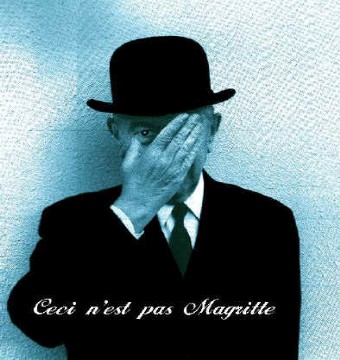Nebraska Judge Disallows Use of Word "Rape"
A Nebraska judge bans the word rape from his courtroom
By Dahlia Lithwick
Posted Wednesday, June 20, 2007, at 7:27 PM ET
[Redacted for boringness]
Yet a Nebraska district judge, Jeffre Cheuvront, suddenly finds himself in a war of words with attorneys on both sides of a sexual assault trial. More worrisome, he appears to be at war with language itself, and his paradoxical answer is to ban it: Last fall, Cheuvront granted a motion by defense attorneys barring the use of the words rape, sexual assault, victim, assailant, and sexual assault kit from the trial of Pamir Safi—accused of raping Tory Bowen in October 2004.
Full Article from Slate.
When I first read this headline, I got angry at the idea of another backwards southern state trying to turn back the clock on women's rights, or as I like to call it the "Shush up honey, and get me another mint julep" style of jurisprudence. But as it turns out, this is actually a rape case and now I'm a little torn on the issue myself.
Rape, as it is being used here in the court room, is a criminal offense that only legally exists when all of the elements of the crime are met. So anytime someone uses it, it is a legal conclusion. It would be the same as allowing the prosecution or a witness to refer to a person accused of embezzling as an "embezzler who was embezzling." You can testify that he had forcible intercourse or that he used violence or anything to describe the situation, you just can't say what it is up to the jury to decide. Whether it was "rape." If everyone is allowed to describe the conduct as "rape" during the trial then it would make sense that the jury would agree.
But to exclude the word at all (as I imagine this was a motion in limine, at the beginning of trial) seems excessive. I'm sure that the victim of a mugging would testify that he was "mugged" or that he was "robbed," even though the latter would qualify as a legal conclusions as well. Of course the victim thinks a crime was committed. I think an instruction or admonishion to the jury before hand would have been sufficient. Something to the effect of "any time someone uses the word rape, you should disregard the use of the word as evidence that the crime was actually committed."
I wonder how this works most of the time. This is too heavy for a friday.


4 comments:
This brings up the question if there can be a rape when there is no rapist. The victim was raped, or at least believed she was. She was forced to have sexual contact without her consent. The question is intent.
I think it is a powerful statement by the judge to ban the words rape and victim. If I was on jury, it would say to me that he believes the the victim is lying.
It's a tough call. I think the question is, "can a defendant charged with rape be referred to as a "rapist" or his conduct called "rape "during the trial for that same charge." It sounds awfully prejudicial.
But you're right, the flipside of the coin is that the jury might get confused as to why they don't use the word if that's what they think happened.
The more I think about it though, banning "victim" is ridiculous. I'm sure in other criminal trials where there are victims, they are freely referred to as victims even before there's been a conviction. You can be a victim without a "crime" having been committed.
Really what this does is change the entire burden of proof -- which at first glance seems to go along with the whole "innocent until proven guilty" thing. So, now you say "accuser" and "accused" rather than "rapist" and "victim" but what does this do to rape as a concept? It's already incredibly difficult to get rape victims to come forward, and it's even more difficult to convict them. Is this good for the Justice system?
Finally, I kind of wonder who this asshole thinks he is -- 300 years of a common law term is not enough for him to follow the FIRST PRINCIPLE OF THE LAW -- stare decisis. I think what bothers me most is this guy's arrogance..... I dont know.
Do you do criminal stuff? I'm just not sure how this normally works. I mean, during a murder trial, I would guess any reference to the defendant as a "murderer" or "killer" would be prohibited either via motion in limine or via objection.
No, I know that getting women to come forward is a difficult task, and that should be promoted 100%. But I don't think allowing prejudicial language against a defendant is a good or effective way to do that. Maybe some automatic restraining order or maybe a way to proceed anonymously, or perhaps police surveillance would be more effective.
It's an issue that seems to get tougher the more I think about it.
Post a Comment